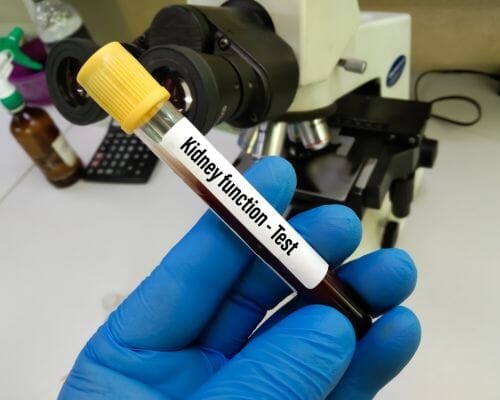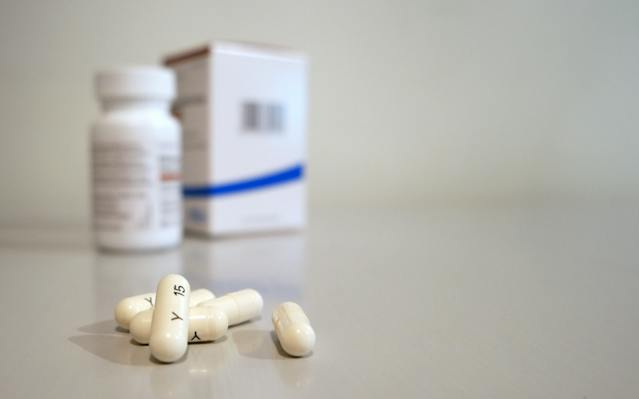
When Should I get a Kidney KFT test? What Symptoms should I watch for?
Time to read 4 min
Time to read 4 min
A kidney function test or a KFT test is an important analysis of the kidneys to check for disease, infection, injury, and damage. Key factors, such as creatinine, uric acid, glomerular filtration rate GFR, and BUN can help in providing a clearer picture to doctors about the health of your kidneys.
Often lifestyle decisions, injury, chronic illnesses, and conditions can impact our kidney function. Through the analysis via KFT, we can check for specific markers that can be improved through medication, treatment, and the right changes.
It is vital to get a KFT test in several cases. You may experience the first signs of kidney function issues or be managing a kidney related condition. Your kidney function analysis can provide better insight into why you may be experiencing the preliminary symptoms.
It is also important to know how well your kidneys are functioning through the analysis of blood urea nitrogen, creatinine, uric acid, etc. The renal function test RFT of kidney analysis, can provide a more comprehensive overview of how your kidneys are functioning with regards to different parameters.
If you are experiencing the kidney function symptoms that are important to track, then you should get a test done. Difficulty in peeing, pain, swelling, and other symptoms should be tracked in conjunction with your overall state of health.
If you are managing diabetes, kidney disease, cystinosis, etc. then getting a kidneys test is important. The test can ensure that your important levels are being tracked properly, so that any medication necessary can be prescribed.
An annual check-up is important especially after the age of 60 years. You can get your levels checked with the right KFT parameters, such as BUN and creatinine. This will give you more information than standards blood tests for lipid panels and blood counts.
If you have changed your medication recently or have started taking medication long-term, then getting a kidney function test is important. This will provide more information on how your body is handling the medication and removing waste products through the kidneys.
If you are a regular smoker or a heavy drinker, then getting your kidneys tested is important. You can check for vital levels under the kidney function test, especially electrolytes which may get washed away due to poor lifestyle choices.
The following symptoms can be helpful in understanding whether you require a kidney function test. Kidney function tests can provide more insight into specific levels that maybe impacting the kidneys. The lab test KFT can also provide insight into whether medication may be impacting your kidney function by testing for different levels in mg dl.
In the event that you are experiencing a frequent urge to pee then getting a test done is vital. Your kidney function may be impacted, especially if you are experiencing the secondary symptoms.
Difficulty peeing may be one of the signs of kidney issues, if you are also having problems with other aspects of your health. You should get a KFT or kidney function analysis so that your overall kidney function can be analysed.
A pain during urination can be an important sign to check for kidney related issues. You may experience this pain during peeing, if you have no other related issues.
High blood pressure related symptoms may also be connected to your kidney function. Your body's ability to remove waste may be one of the main issues behind high BP and other health concerns.
Water retention in the hands and feet may be important signs of kidney related issues. You may experience this from time to time or during critical periods of kidney function issues.
Blood in the urine should be tested so that you can understand what may be the underlying condition. You can also experience this with signs of hydration problems, which can be connected to kidney waste removal problems.
A sudden change in your weight may be connected to overall kidney function issues. This should be tested with a KFT test.
There are several tests included within the KFT check-up. The blood sample is drawn by a technician who can visit the home for ease of convenience. You need to fast for 10-12 hours prior to testing for more accurate results.
After the sample is collected, it is sent to the laboratory for a complete analysis across different parameters. समपल लैब टेस्ट के लिए जाता है|
Creatinine levels can help in providing information about your kidney's ability to remove waste through the excretory system's processes. High levels of creatinine can indicate issues with filtration in the kidneys.
Medication, infection, and illnesses can impact blood urea nitrogen levels in the body. Your medical history should be analysed when understanding out of range BUN.
Your risk of kidney disease and infection can be detected with low levels of uric acid in the body. You may require further testing to check for more specific reasons by uric acid may be impacted.
Ranges outside of the normal 60 GFR should be checked for renal function issues. You may require further testing to check why your filtration rate is impacted.
The ranges of sodium, chloride, and potassium, can provide a deeper dive into why your kidneys are functioning at suboptimal levels. These electrolytes are vital for a range of processes, which is why kidney testing is vital.
* * Medical Disclaimer - The following information is for educational purposes only. No information provided on this website, including text, graphic, and images, are intended as substitutes for professional medical advice. Please consult with your doctor about specific medical advice pertaining to your condition(s).

